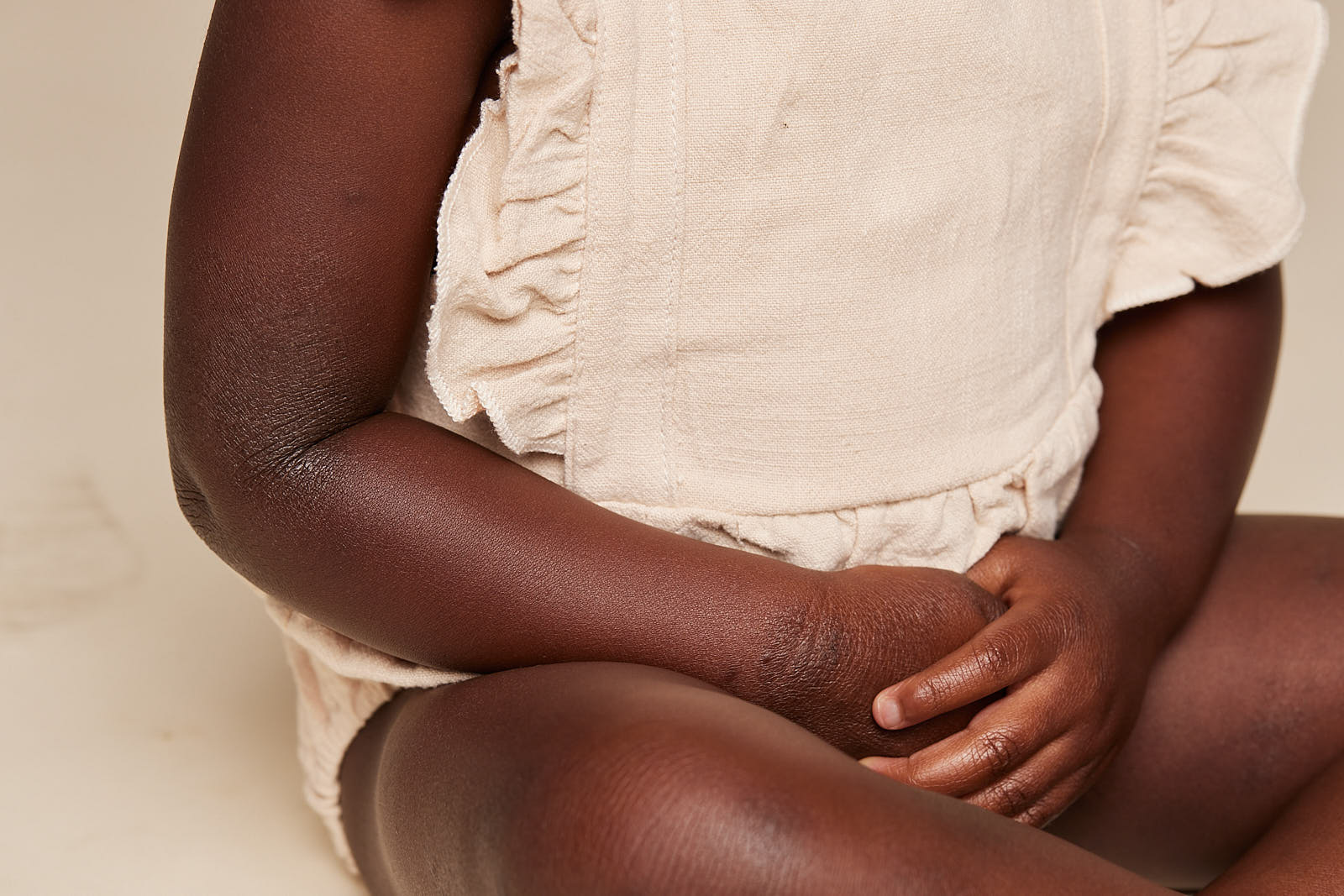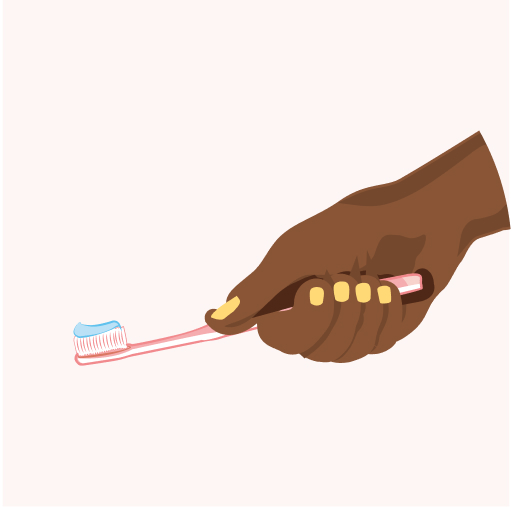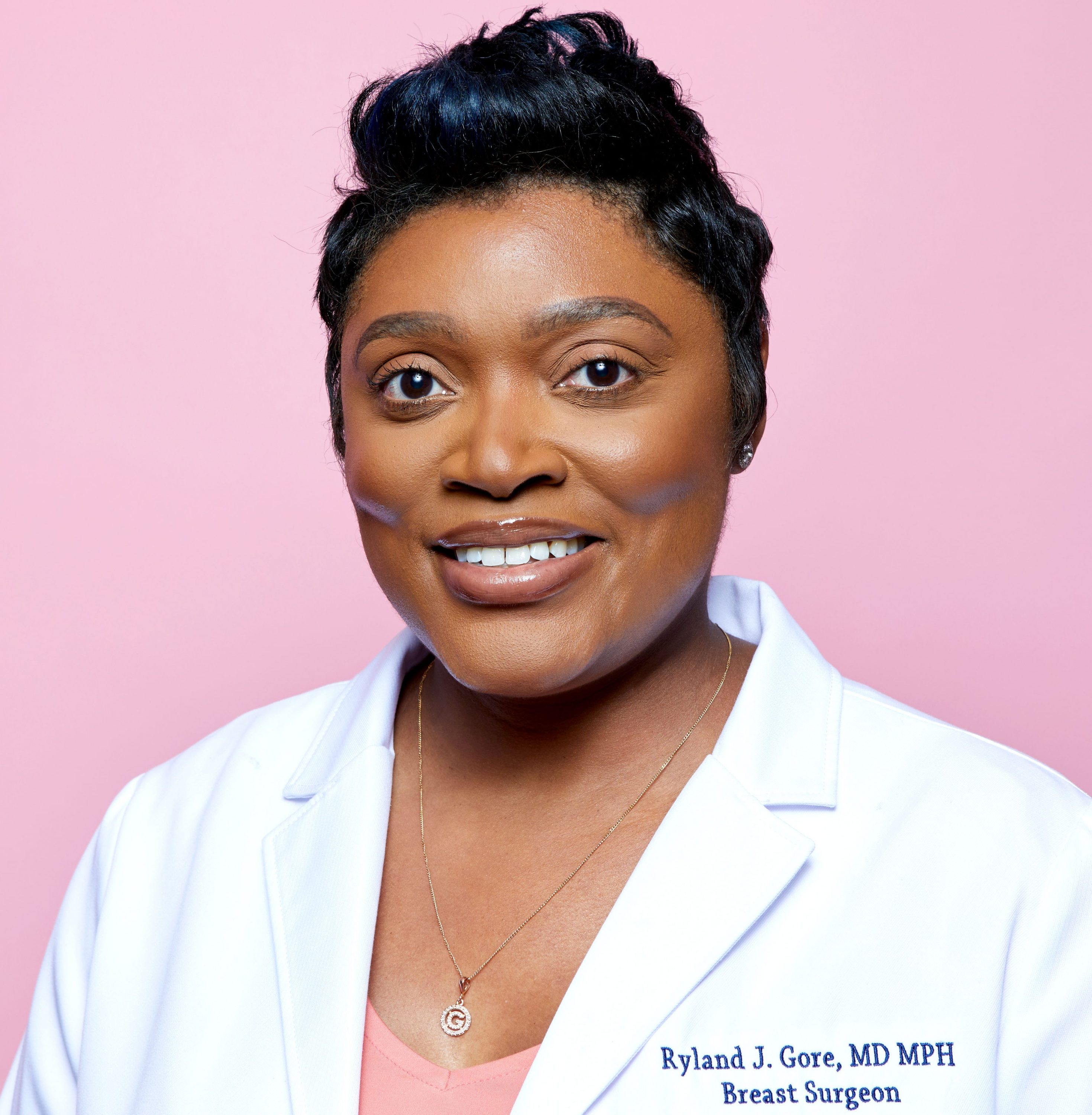
Baby Eczema 101: Tips for Recognizing & Caring for Eczema on Skin of Color
Eczema is the second-most prevalent skin disease to affect Black Americans, and 20% of Black children have some form of eczema, usually developing during infancy and early childhood. Despite its prevalence in the community, this condition often goes undiagnosed in Black patients due to a historical lack of clinical research on how the condition presents on patients with darker skin tones. Early detection and treatment are especially important for Black babies and children as their risk of severe atopic dermatitis (the most common type of eczema) is 6 times higher compared to white children. To help address this disparity, we’ve teamed up with Aveeno to help close the #EczemaEquality gap by sharing tips for recognizing and caring for eczema on babies with skin of color. Read on to learn more.
Eczema’s appearance on Black and brown skin
Eczema looks different depending on a baby’s skin tone. While an image search for eczema will primarily yield pictures of lighter skin with a red, dry rash, for skin of color patients, eczema can appear in varying shades of dark brown, purple, or ashen gray. Affected areas will usually appear darker than surrounding skin that is unaffected, and this hyperpigmentation can last longer than the initial eczema flare. In addition to the discoloration, affected areas may be very dry or scaly and intensely itchy.

Common eczema flare locations
Eczema can flare on any part of the skin, but common flare-up locations include folds of the skin behind the knees or around the ankles and wrists, as well as the face, neck, and upper chest. If you notice these symptoms, bring your baby to the doctor as soon as possible, as early diagnosis and aggressive treatment is important.

Tips for managing your child’s eczema
Once your baby has been diagnosed with eczema, you can manage the condition by learning what triggers flare-ups for your baby, being mindful of the type of clothing you put on them, and keeping their skin clean and moisturized.
- Anticipate triggers
Genetics and environmental factors can both play a role in triggering eczema flare-ups in babies. Common environmental irritants are all around us – warm or cold weather, pollen, pet dander, dust, fragrances, soaps, and dyes can all cause flare-ups. Knowing what triggers your baby’s eczema can help you better prepare to care for baby’s skin.
- Choose the right fabrics
Caregivers should avoid dressing baby in any fabrics that lead to sweating or can cause irritation (wool) and instead opt for open-weave, loose-fitting fabrics like cotton or bamboo. These allow the skin to breathe and regulate temperature.
- Bathe baby based on their flares & moisture retention
When bathing baby always use lukewarm water and a hypoallergenic, fragrance-free cleanser. If you find that bathing baby daily strips their moisture, you can bathe baby every other day. Once baby is clean, you can apply any prescribed medications followed by moisturizer to their wet skin to help seal in the moisture.
- Keep nails trimmed
You will also want to protect your baby from irritating their skin further by scratching – keep their nails clipped or put cotton mittens on their hands while they sleep.
- Use oat-based products
Prebiotic oat is a skin nurturer suitable for all skin types and ages. Oat naturally contains proteins, vitamins B and E, and nourishing lipids that work to lock in moisture for rough, dry skin and help maintain the balance of the skin’s microbiome for healthy-looking skin.

Though it is frustrating to watch your baby experience discomfort, taking the proactive steps outlined above can help you care for their eczema and improve their overall skin health. Aveeno also has additional resources for caregivers, including a number of products specifically formulated to soothe baby’s skin. We invite you to help close the #EczemaEquality gap and remind other caregivers that they are not alone in the fight against baby eczema by sharing your child’s eczema journey with Aveeno Baby. Participants will receive a free Aveeno Baby Eczema Therapy Nighttime Balm and an educational booklet.
To enter:
- Tag @AveenoBaby on Instagram or @AveenoBabyUS on TikTok.
- Use the hashtag #EczemaEquality and #FreeProduct in your post’s caption.
- Any child featured in bath/water, or in frame with any product, must also include adult supervision.
- No nudity from the waist down.
- Must not contain trademarks/logos or anything owned by other parties.
US +18, must be child’s parent/legal guardian; see terms at https://www.aveeno.com/eczemaequalityterms while supplies last.
Learn more on the Aveeno Baby Eczema Equality website.
More Content
General Health
Our Voices: My healthcare Experience Propelled me to Advocate for Communities of Color
I still remember the undergraduate course that...












